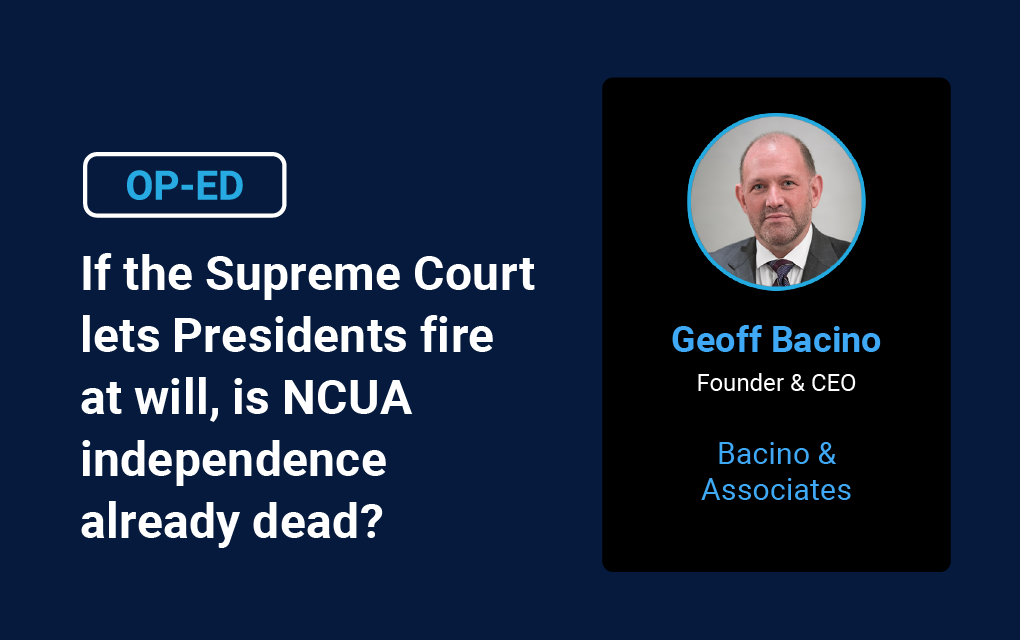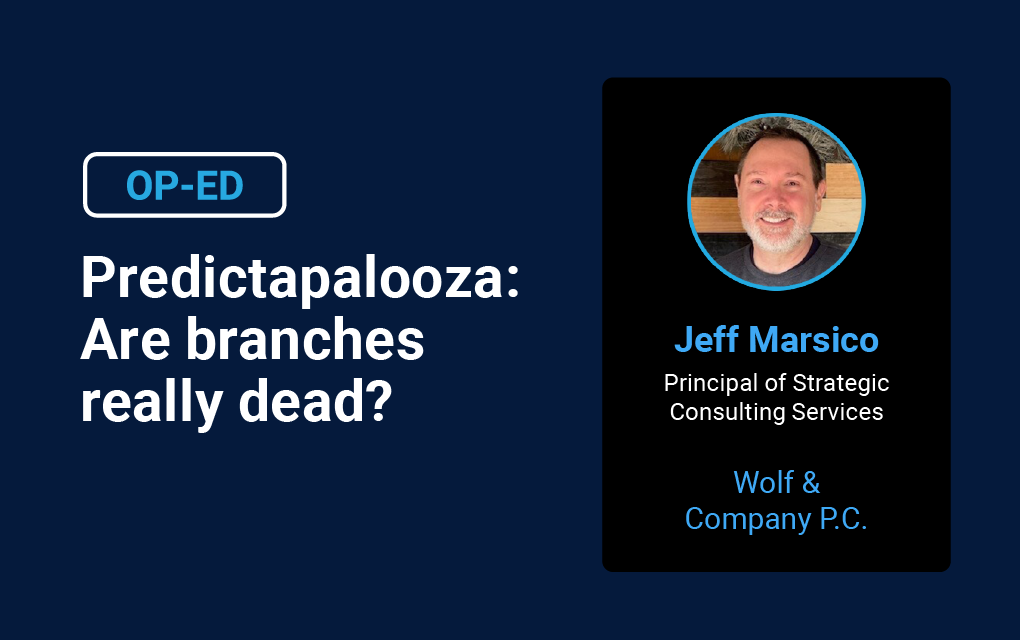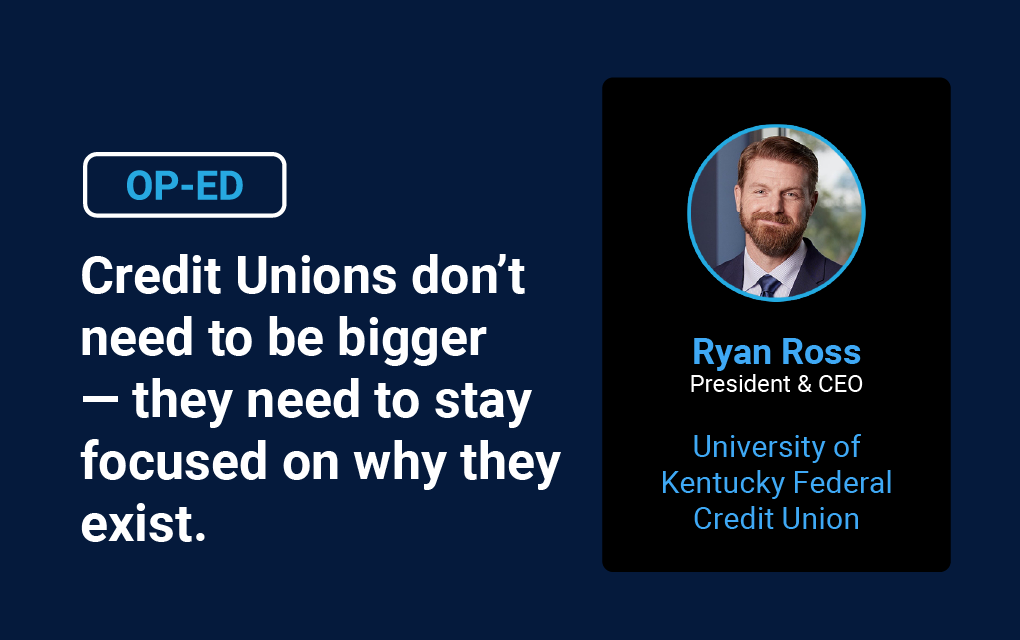Lighthouses, not skyscrapers: The leadership choice that will define credit unions’ future
Imagine a lighthouse replaced by a skyscraper.
One stands anchored, casting light for the community. The other rises high, built to impress, not to guide. That’s the risk when credit unions trade their cooperative roots for corporate models. In chasing the look and language of big banks, they risk becoming what they were built to challenge, and losing what made them trusted in the first place.
This transformation doesn’t happen overnight. It often happens when leadership changes hands. Credit union boards and executive hiring teams must approach CEO selection with greater discernment. Too often, what begins as a search for growth becomes a slow fade from the values that made the institution matter. And what once felt like a lighthouse slowly becomes just another high-rise with a different name on the door.
I write this not as an outsider, but as someone who’s walked both roads. I’ve held executive roles in traditional banking and within the credit union movement. I’ve built commercial divisions, navigated boardrooms, and now consult across both worlds. That dual perspective gives me a front-row seat to a quiet but dangerous trend, one that needs naming before it becomes irreversible.
Recently, credit unions breathed a collective sigh of relief at retaining their tax-exempt status.
But here’s the uncomfortable truth: nearly 50 percent of credit union CEOs are over the age of 55, and 29 percent are 60 or older (CU Times, 2023). We are on the verge of a leadership transition unlike anything the industry has faced. And if we keep appointing bank-trained CEOs who reshape credit unions into mini-banks, that status may not hold. If we start operating like banks in practice, regardless of tax status, we should not expect to be treated any differently.
It’s not just about who we hire. It’s about what those hires reveal. There’s a subtle but growing trend where phrases like “digital transformation” and “business innovation” are used to justify importing commercial banking playbooks into cooperative institutions. The result? Credit unions begin to act and look a lot like the banks they were built to be better than.
Let me be clear—I’m all for digital transformation and innovation. But transformation shouldn’t be about chasing Chase. It should be about championing our members. The goal must be to make it easier for them to engage with us, to build their financial futures, and to experience the values that make credit unions worth choosing. Progress is good, but only when it moves us closer to our mission.
I’ve seen it unfold firsthand.
At one credit union, a newly hired CEO from the traditional banking world mocked his predecessor by placing a tombstone-shaped monument outside the building, symbolizing “the death of the old way.” It gutted morale. Around 30 percent of staff left, which, by the way, was that CEO’s stated goal. Member satisfaction quietly declined. By the time the board realized the impact, the culture had shifted too far to course correct. That credit union is now virtually indistinguishable from the bank the CEO came from.
And I say this with empathy, because I was that banker once. Big title, big market, big ambitions. But everything changed during the pandemic, when I kept hearing the same story night after night from small business owners: “My bank won’t call me back.” They weren’t looking for dashboards. They were looking for someone who cared.
That’s when I stepped off the corporate ladder and into the credit union movement. It wasn’t seamless. I made my share of mistakes, like wearing a tie every day for six months until a colleague gently said, “Phil, you can stop dressing like a banker now.” But what I found was a mission I believed in. Credit unions aren’t just smaller banks. They’re something better, if we protect what makes them so. Culture, not capital, is their greatest asset.
The risk isn’t hiring a bank executive. It’s hiring one who doesn’t believe in the cooperative soul of a credit union. Some arrive with humility and curiosity. But for some, the credit union becomes a fallback, not a calling. It becomes a shortcut to the corner office rather than a step into a shared mission. And that’s where the unraveling begins. Hire the heart, not just the résumé. Because this movement needs believers, not opportunists. And we can’t allow personalities to stand in the way of progress.
Story continued below…
Let Freedom to Interact With Their Money Their Way Ring This Independence Day!
From instant account opening to AI-powered personalization, discover how to build a digital experience worth celebrating.
July 2nd, 2pm EST
Financial Brand Webinar
This is the conversation every credit union board should be having right now.
Culture doesn’t just influence strategy, it is strategy. Because if your values aren’t driving decisions, something else is. And it rarely serves the member. Leadership drives culture. Hire the wrong leader, and no mission, no values, no onboarding plan can hold the foundation.
What Can Be Done?
1. Plan succession early.
Don’t wait for a resignation to start identifying internal talent who live the mission.
2. Test before you trust.
If an external hire is necessary, start them in a non-CEO role, like Chief Strategy Officer, to evaluate fit before handing over the reins.
3. Scrutinize the résumé and the record.
A history of layoffs, often coded on the résumé as “led M&A activity,” short tenures, or declining institutions isn’t a coincidence. It’s a pattern.
4. Listen for mission, not just metrics.
Ask every candidate: “How will your leadership expand our cooperative impact?” Look for more than buzzwords. Ask: Who will be better served if your strategy succeeds? Who will feel more seen? If their answers are clean, concise, and human, you might have a fit. If they talk in vague frameworks, keep looking.
Let’s be honest, profitability matters. But for credit unions, profit should be the outcome of purpose, not the purpose itself.
If we forget this, if we prioritize polish over purpose, we risk becoming the very institutions we were born to redeem. And when that happens, not only will our members lose something irreplaceable, but we may lose the moral authority to call ourselves credit unions at all.
We’re not here to impress Wall Street. We’re here to serve Main Street.
We’re not towers. We’re lighthouses.
And the beam only shines when our leadership reflects the values that built this movement.
LeadFirst IQ is a credit union consultancy built on one simple belief: When you unlock the potential of your people, you unlock the future of your business.
Disclaimer
The views, opinions, and perspectives expressed in articles and other content published on this website are those of the respective authors and do NOT necessarily reflect the views or official policies of Tyfone and affiliates. While we strive to provide a platform for open dialogue and a range of perspectives, we do NOT endorse or subscribe to any specific viewpoints presented by individual contributors. Readers are encouraged to consider these viewpoints as personal opinions and conduct their own research when forming conclusions. We welcome a rich exchange of ideas and invite op-ed contributions that foster thoughtful discussion.










